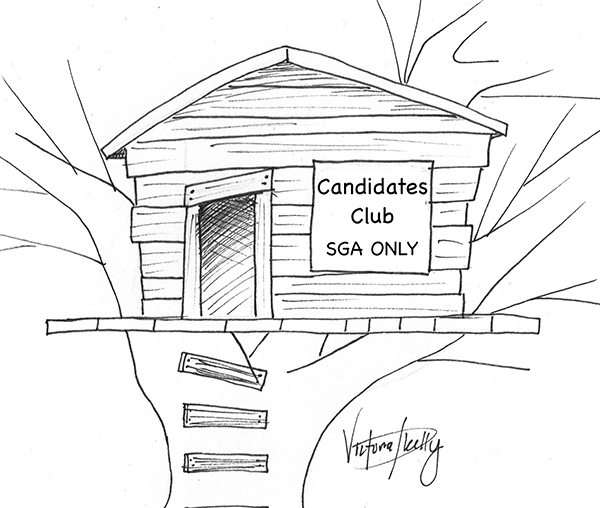Presidency closed to outsiders
April 13, 2016
On May 29 and April 5, Student Government Association Parliamentarian Jeffrey Wainwright proposed a constitutional amendment to allow one non-senator to run on a presidency ticket. The vote was struck 30-2.
Wainwright explained that there are students who could be good association presidents or vice presidents without having been a senator, such as club officers.
One argument raised against is that a candidate would not know the association’s discussion guidelines, Robert’s Rules.
This may not be a concern because Robert’s Rules is used in other organizations.
Another argument raised during the debate is if someone wishes to become president or vice president, they should show their dedication to serving the student body through at least a term of being a senator first.
Being a senator is not the only way to serve the student body. Being a club officer or being an active member of the campus community serves the body as well. A minimal dedication to the student body cannot be gleaned through time served on the association.
Another argument raised is that a club would be foolish to elect a leader from outside the organization. We understand this argument, but suggest that the association officers hold a unique position. Its role to represent and lead must come before its role to act as a normal club.
A third raised argument is that not every student should be permitted to run. For this reason, several senators suggested adding an officer requirement to the proposal to guarantee minimum experience and leadership.
This suggestion could certainly improve the proposal, but is not necessary. There is already a minimal requirement for the ticket: Candidates must obtain 250 signatures, have a high enough GPA and win the most students’ votes.
Students should be trusted to vote for whoever is best for the student body. That indeed may be a ticket with a lot of senatorial experience, but voters should have every option available to them.
From these raised arguments alone, we are at a loss as to why so many senators disagreed with the motion. We do not have all the information and experiences that the voting senators have. For this reason, we ask senators to explain their vote to strike in more depth.

